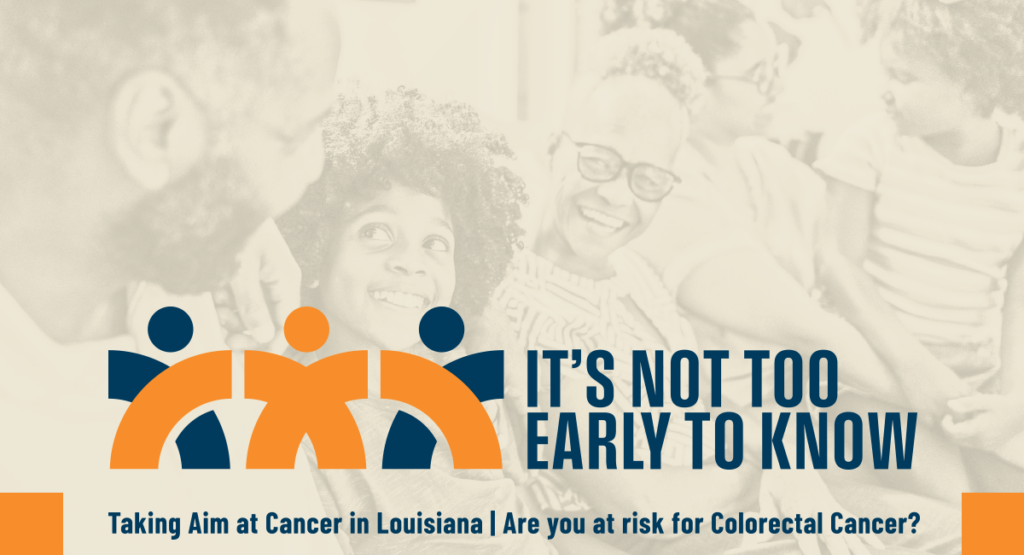
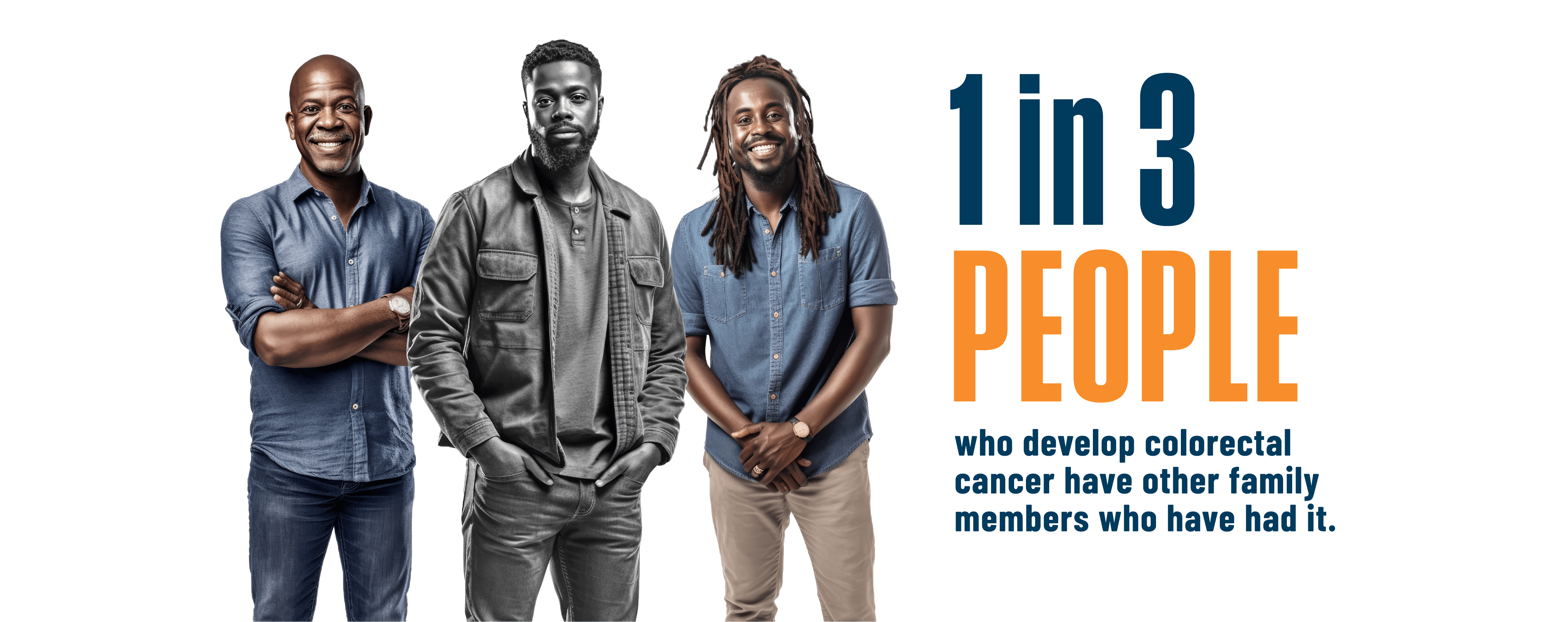
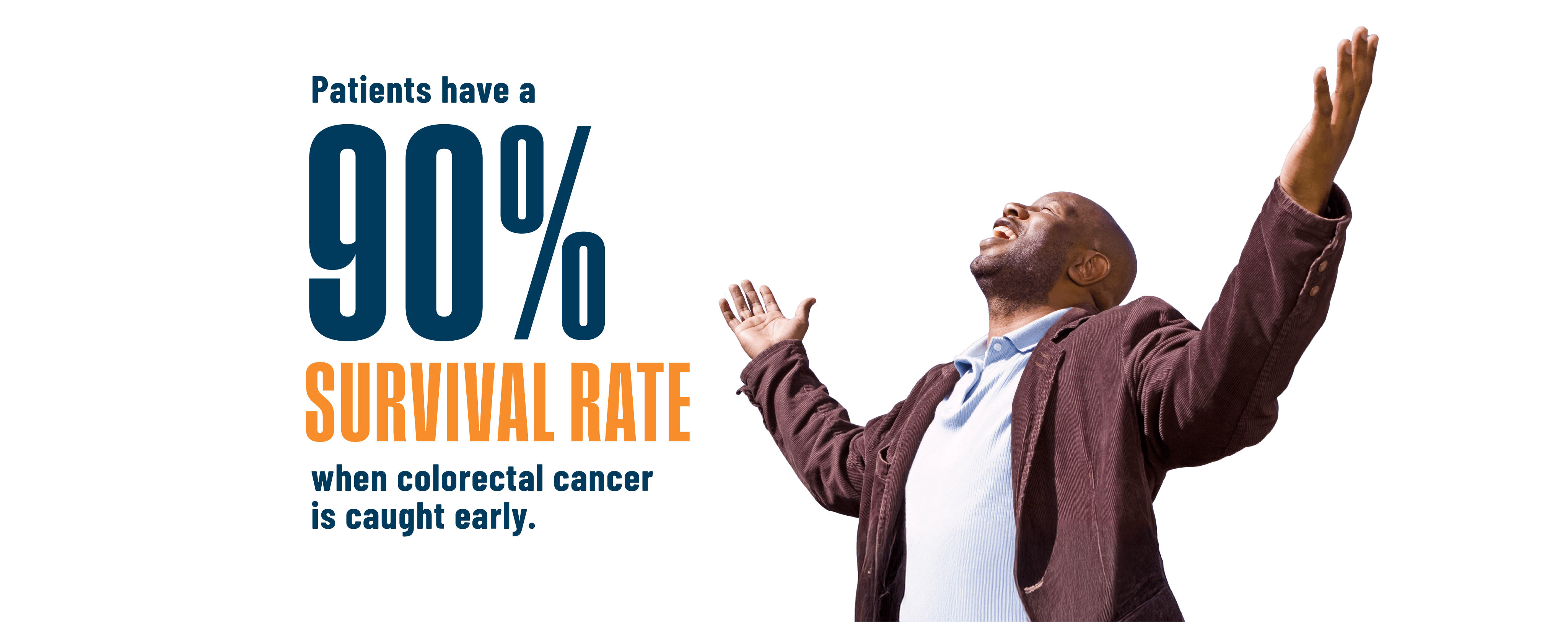
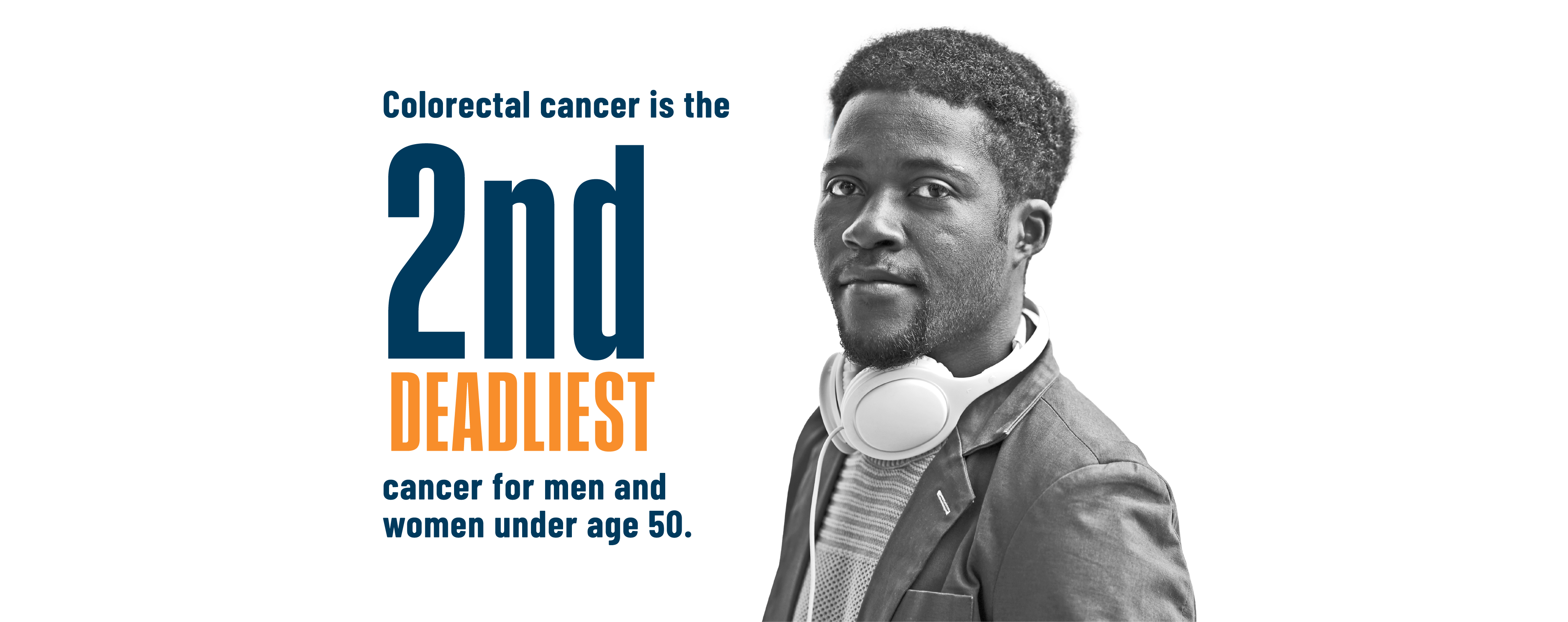
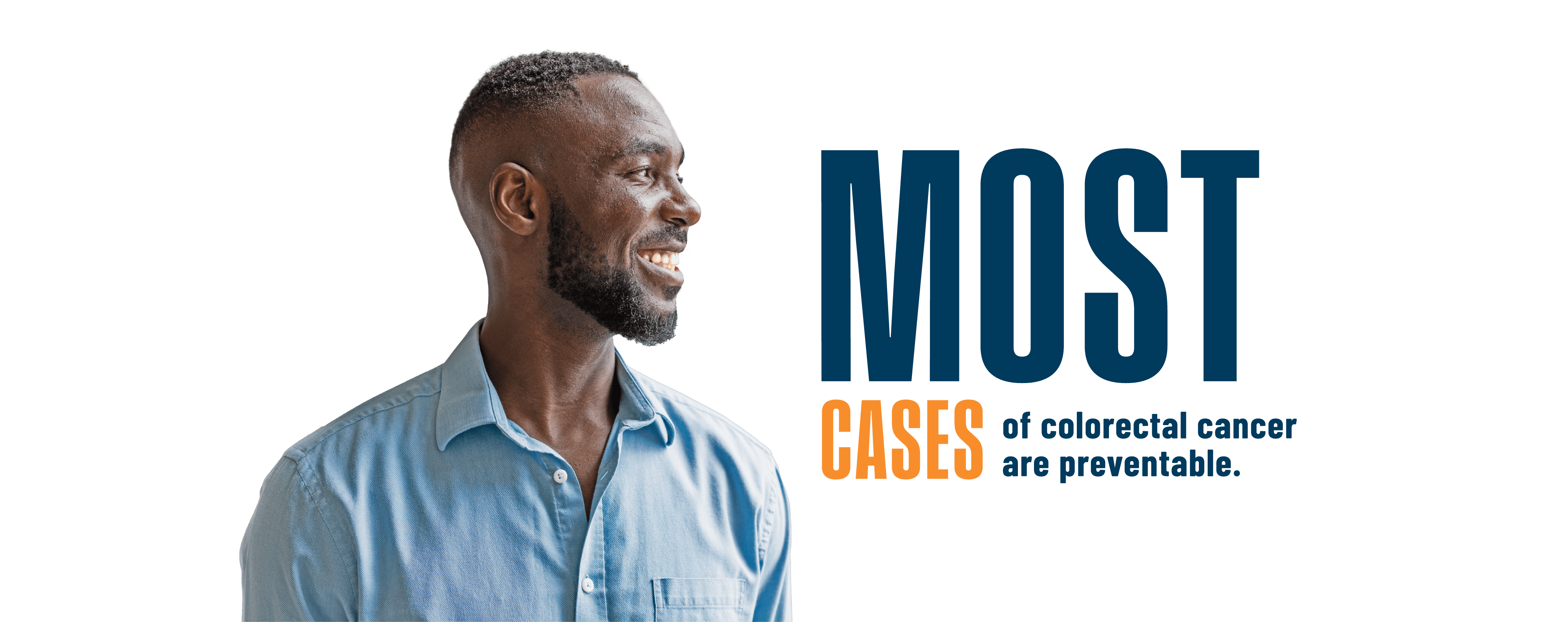
Are you at risk for developing colorectal cancer (CRC)? Think you’re too young to worry about it? Think again. This cancer has been affecting more and more young people in our community. CRC may emerge as the leading cause of cancer deaths among individuals under 50 in Louisiana by 2030.
It’s not too early to know about your colorectal cancer risk.
Screening starts at age 45 for most people. If you have a family history of this disease, you may need to get screened earlier. Now is the time to take action.
Dr. Corey Hebert
Think you’re too young to worry about colorectal cancer? Think again. This cancer is affecting more and more young people under the age of 50 in Louisiana - especially Black men in our community. Just ask Dr. Corey Hebert.
Dr. Rani Whitfield
As a doctor in Baton Rouge for over 20 years, Dr. Rani Whitfield has seen it all when it comes to the health of his patients. But, when it comes to colorectal cancer, this is different. This type of cancer is impacting more and more young people in our community.
Dr. James Hobley
Based in Shreveport, Dr. James Hobley has been raising awareness about colorectal cancer for years. He's seen it many times among his patients. While he used to see this cancer in people ages 55 and up – he's now seeing some young people in their 30s and 40s dealing with this terrible disease.
Ask your family members if colorectal cancer runs in your family. People with a history of colorectal cancer in a first-degree relative (parent, sibling, or child) are more likely to get colorectal cancer. The risk is even higher if that relative was diagnosed with cancer when they were younger than age 50, or if more than one first-degree relative is affected.
Asking these questions now can save your life!
Colorectal cancer starts in the colon or rectum as precancerous growths, called polyps, that can be removed during a colonoscopy. Colon cancer and rectal cancer are often grouped together because they have many features in common.
Unfortunately, Louisiana has the 5th highest colorectal cancer death rate in the United States. That is because we have more people who are at a higher risk due to family history or genetics and people don’t get screened on time. The good news? When caught early, patients with colorectal cancer have a 90% survival rate. Better yet, if you get screened, you can potentially avoid this type of cancer altogether!
There are many risk factors that might increase a person’s chance of developing colorectal cancer. One big one is genetics, or your family's history of colorectal cancer.
The reasons for this are not yet understood, but genetic factors (which are passed down in your family) may play a role in your colorectal cancer risk. People who have a family history of the disease should talk with their doctor to see if they need to be screened earlier than age 45. Knowing if this cancer runs in your family can save your life!
For individuals at average risk, it is recommended that you start getting screened at the age of 45. For those with above average risk or a family history of the disease, talk with your doctor to see when you should get screened.
There are several ways to get screened such as a colonoscopy and stool based tests. A colonoscopy is performed at a clinic every 5-10 years. Stool tests can be done at home every 1-3 years. If you get a positive stool test, you must get a colonoscopy. All tests are covered by insurance for those that are due. What’s most important is that you get screened regularly.
Education and awareness are keys when it comes to beating colorectal cancer. There are resources in your community you can rely on to help you make educated and informed decisions about screening and assessing your colorectal cancer risk.
American Cancer Society
Louisiana Cancer Prevention & Control Programs
Taking Aim at Cancer in Louisiana
